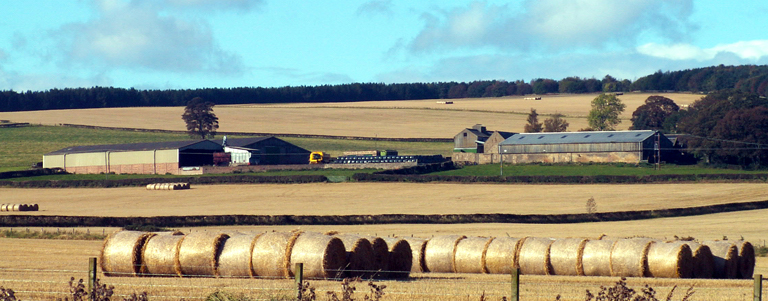Getting off the Mark with Your Tenancy Application Webinar Summary
3 April 2024Next Generation Newsletter
This article is produced as a part of the FAS Next Generation Newsletter. Subscribe now to receive the full report in your inbox quarterly.
In Part One of the FAS Getting off the Mark with Your Tenancy webinars, Andrew Marchant, Buccleuch Estate tenant farmer, shared his experience from working on a farm to applying for a tenanted farm and being successful in taking on his own tenanted farm as a new entrant. He started on his tenanted farm, Clonhie Farm, with 12 ewes and worked off-farm to maximise income for the farm in the initial years to allow him to purchase stock and build up numbers on the farm quicker. As well as building up stock numbers, he explored different enterprises. Andrew has continually expanded his business, gaining extra rented land nearby allowing him to build stock numbers further. At Clonhie Andrew now has a herd of Luing cows, herd of farmed deer and a flock of sheep. He also has a contract farming agreement in place which allows him access to another income stream. He highlighted the important things to think about and include in your business plan when applying for a tenancy including the financial aspect. Andrew was a great speaker, and he was open about his experience and sharing his advice. He also highlighted the importance of new entrants being open minded to opportunities and not restricting their search too much to a certain location or type of tenancy to get the best chance of success due to the small number of farm tenancies that come to the market.
In Part Two of the FAS Getting off the Mark with Your Tenancy webinars, SAC Consulting's Jennifer Galloway spoke about the different types of tenancies and the legalities affecting them. She spoke about grazing licences, Short Limited Duration Tenancies, Modern Limited Duration Tenancies, Repairing Tenancies, and pre-1991 “secure tenancies” and the differences between them. Jennifer also explained what Contract Farming is and how this agreement can be moulded to suit the ‘Farmer/Landowner’ and ‘Contractor’. SAC Consulting’s Robert Ramsay then spoke about what to include in a business plan for a tenancy application, and top tips of how to prepare yourself and get yourself in the best position possible for when a tenancy opportunity arises.
Alongside these videos there is also support for applying for a farm tenancy and writing a farm tenancy tender application at https://www.fas.scot/rural-business/new-entrants/agricultural-tenancies/. We also have a webinar and publication on relinquishment and assignation of 1991 “secure” tenancies and other useful tenancy resources.
Tenancy Opportunities
Forestry and Land Scotland (FLS) are committed to providing opportunities to new entrants to agriculture and those progressing from new entrant status, by weighting the scoring of application in favour of suitably qualified new entrants or progressing farmers, where they contribute to the wider objectives. FLS currently have 10 areas of land across the country ranging from 1.60 ha to 245.70 ha offered as a mixture of seasonal grazing licence (<364 days) and 5-year SLDTs. Many have a conservation grazing focus and restrictions on the livestock used for grazing, that should be factored into any application. For more information see Agriculture opportunities - Forestry and Land Scotland.
By Kirstyn Blackwood, SAC Consulting
Sign up to the FAS newsletter
Receive updates on news, events and publications from Scotland’s Farm Advisory Service

